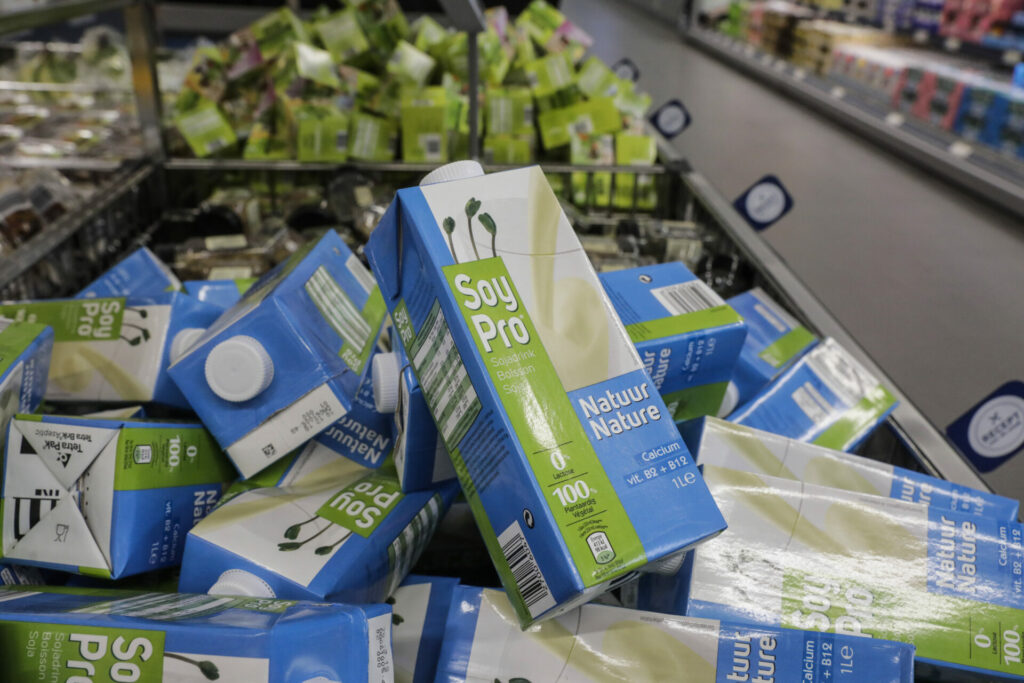Plant-based milk producers have called out tax "discrimination" between different types of vegan alternatives, criticising the Belgian government for contradicting its own sustainability goals.
Belgium is one of a handful of EU Member States to charge the same amount of VAT for plant-based milk as it does for dairy milk, but alternative milk company Tiptoh has identified an inbuilt disadvantage: while rice and soya milk are considered alternative milk sources, oat-based, almond-based and pea-based products are not.
Tiptoh founders Arnaud Muylaert and Louis Curtil were shocked to receive a bill of €30,000 in excise duties and a further fine of €10,000 during the summer, having assumed their pea-based product fell under the category of alternative milk. "I had no idea we had to pay excise taxes," Muylaert told De Tijd. "That bill was a very unpleasant surprise. €40,000 is a lot for a company with a turnover of €200,000."
Current legislation taxes sweetened and unsweetened drinks at 22 cents and 17 cents respectively. By contrast, dairy, soya and rice milk are exempt from these charges.
In light of the unforeseen costs, Tiptoh has been forced to charge over €3 per carton. The company worries it will suffer from a competitive disadvantage. "I am concerned about the survival of our company," says Muylaert. "The price of all plant-based products must be accessible. They are the future."
Demand for environmental alternatives
Plant-based milk alternatives are celebrated for their significantly lower environmental impact. Production uses considerably less land and water resources and emits less emissions.
Consumer behaviour across Europe reflects a growing desire to favour environmentally friendly products, with more people opting for vegan or flexitarian lifestyles. In 2o22, 28% of Belgians avoided eating meat or fish at least one day a week compared to just 13% in 2016. In 2021, almost half of Europeans reduced their meat consumption.
There is therefore an enormous incentive for retailers to cater to the demand for accessible vegan products; in Belgium, Danone is keen to rise to the occasion. In November, the French multinational's Alpro range launched a six-week low-cost initiative that encouraged retailers to sell cartons for a promotional price of €2 in a bid to drive up consumption. Customer development director Olivier Rabartin described the project as a "mission to convert more and more consumers to a flexitarian diet."
Related News
- Belgians spent record amount on dairy products in 2022
- Lactose-free price imbalances investigated in new report
- Government advisors propose environment tax on meats
Lack of political will?
The government response to Tiptoh's appeals has been lacklustre. Finance Minister Vincent Van Pethegem (CD&V) announced that the VAT exemption for regular milk is under review but indicated that no major changes will occur under the current government.
Danone has experienced the same tax hurdles as Tiptoh – albeit feeling the impact much less than the small Belgian start-up. "Our society is undergoing a sustainability transition," said Nathalie Guillaume, Danone's communications and sustainability director. "A flexitarian diet of dairy and plant-based alternatives is the future. There should be no discrimination in the valuation of both types of milk drinks."

